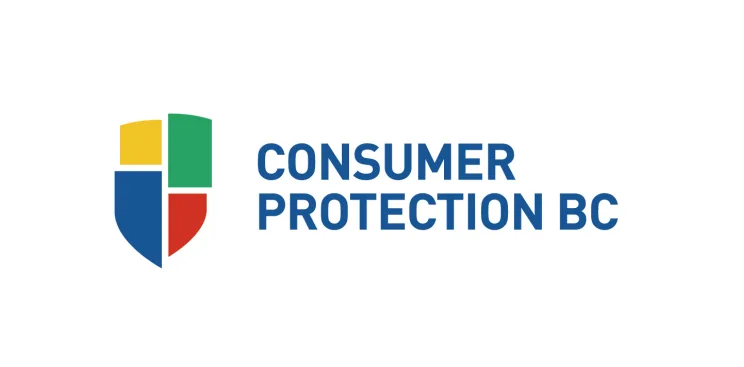
Can a service provider I'm thinking about hiring tell me they are certified when they actually aren't?
When you hire someone to perform a service, you are making a contract. As parties to the contract, you and the person you hire have certain legal rights and obligations.
What you should know
Under BC law, service providers are not allowed to mislead you to convince you to hire them. In their advertising and in their conversations with you, a service provider cannot say anything that has the capability of deceiving or misleading you.
For example, a service provider must not advertise or tell you that:
what they are selling has uses or benefits that it does not have
what they are selling is of a particular standard or quality when it isn’t
they have an approval, status or connection that they don’t have
you are getting a special price or benefit when they are really offering the same thing that you can get somewhere else
There are also federal laws that prohibit service providers from advertising or saying anything that is false or misleading. For example, a service provider must not advertise or tell you that:
what they are selling is on "sale" or "special" unless the price is lower than the ordinary selling price (and they can’t artificially increase the ordinary price)
what they are selling is endorsed by someone when that is not true (that is, they can’t make up a fake testimonial)
No one actually needs to be deceived or misled for a court to find that a representation is misleading. If the general impression given by a representation is misleading, that is enough.
Here are examples of misleading representations:
a home renovation company advertising a “renovation professional designation” when the company does not have that designation
a pool cleaning company advertising that they are “the only full-time pool cleaner in the area" when that is not true
a roofing salesperson saying that your house needs a new roof when it doesn’t
Service providers who break these laws can be fined, jailed, or ordered to compensate consumers who suffer losses.
Under BC law, service providers are not allowed to act unfairly towards you or knowingly take advantage of you.
For example, a service provider cannot charge you a price that is far more than what others are charging for the same thing.
A service provider cannot subject you to “undue pressure” to force you to buy. An example would be if an alarm service company tells you that you have to sign a contract immediately to get a “special price” they are offering.
As well, a service provider is not allowed to knowingly take advantage of you. For example, a contractor who knows that you just bought your first home and are financially stretched can’t press you to do a luxury kitchen renovation that they know you can’t afford.
Nor can they take advantage of any vulnerabilities that you may have that affect your ability to protect your own interests, such as any physical or mental disability, illiteracy or language difficulties. For example, a service provider is not allowed to force people whose first language is not English to sign complicated contracts that they do not understand.
If the service provider does something unfair, any agreement you sign is not binding on you.
When you contract with someone to perform a service, the person you hire must:
use reasonable skill and care
do the work in a "proper and workmanlike manner"
use materials of reasonable quality
For example, if you hire a carpenter to install a cabinet in your bathroom, the carpenter must use reasonable skill and care, do the work in a "proper and workmanlike manner", and use materials of reasonable quality. If the cabinet doors don’t close properly, the carpenter would not have fulfilled their duty under the contract.
You also have a right to expect that the work will be:
finished by the date you have agreed, or within a reasonable time if you haven't agreed on a date
provided at the cost you have agreed, or at a reasonable cost if you haven't agreed on the cost
When you hire someone to perform a service, it is best to have a written contract that is clear about what you have agreed.
The contract should include this information:
name and address of both parties
detailed description of the work to be done
who is to complete the work
who is responsible for getting and paying for any necessary approvals and materials
when work will start and when it will end
detailed breakdown of the cost (including labour, any materials used, and taxes and fees)
how and when payment will be made
what will happen if you and the other party cannot agree
The wording dealing with what will happen if you and the other party cannot agree does not need to be complicated. You could say something like:
If we have a disagreement under this contract, we will first try to resolve it with the help of a mediator. We will each pay half of the mediator’s fees.
When you hire someone to perform a service at a time in the future (which could be next week, next month, or next year), you are making what the law calls a future performance contract. Special rules apply to these contracts.
(If the contract is for services under $50, these rules do not apply.)
The contract must include certain information
The contract must be in writing and must include specific information, including:
the service provider’s name, address, and telephone number
a detailed description of the services to be supplied under the contract
the total price under the contract, as well as an itemized breakdown of the price and any taxes, shipping and other charges
a notice of your cancellation rights
the date for the supply of the services, and the date on which the services will be complete
if there are periodic payments under the contract, the amount of each of the periodic payments
The service provider must give you a copy of the contract
A service provider must give a copy of a future performance contract to you within 15 days after the contract is entered into.
If the contract doesn’t include the information that the law requires, you may cancel the contract up to one year after receiving a copy of it.
Tip
A future performance contract is not binding on you if the service provider gives you—or offers to give you—a discount if you give them the names of prospective customers.
When you hire someone who comes to your door, special rules and considerations apply.
Prevent problems
When you are thinking of hiring someone, ask for the names and phone numbers of people they have worked for in the past. Phone these references and ask them: what was the quality of the work, was it done on time, and was it within budget?
Contact the local Better Business Bureau to find out what they know of the service provider you’re thinking of hiring.
See what other people are saying about the service provider by searching online for their name and the word “reviews” or “complaints”.
When you make an offer or counteroffer to the service provider, say it with confidence. Be polite and reasonable, but firm.
If service provider offers a contract, read the fine print before you sign. Don’t take the signing of this document lightly.
Go over every section of the document, including any text on the reverse side of printed pages.
Ask the service provider to explain what things in the agreement mean if you don’t understand them.
Fill in all areas of the document or put a line through them if there are blank spaces.
If the service provider doesn’t provide a contract, write one. You can use our basic contract template and tips for how to write a legal contract.
Make sure the contract includes:
the date on which the supply of the services will be complete
the service provider’s contact information
when payments are due
any promises the service provider has made about quality
Who can help

Consumer Protection BC
Assistance relating to certain types of consumer problems and contracts in BC.

Better Business Bureau (BBB)
Receives complaints about local businesses that are members.

Competition Bureau
Deals with complaints about false or misleading advertising.

